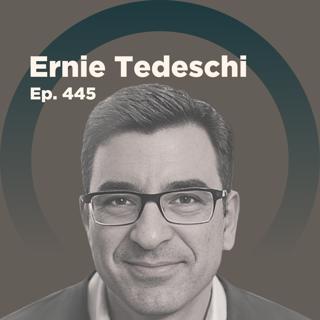
Kyla Scanlon on the “Vibecession”, the Vibe Economy, and the Path to Growing American Wealth
Kyla Scanlon is the founder of Bread, a financial education company where she brings economics to a wide and often younger audience, and is also the author of the book, *In This Economy? How Money and Markets Really Work.* Kyla joins David on Macro Musings to talk about a wide range of economic issues, including the case nominal GDP targeting, the basics of the “Vibecession” and the vibe economy, how to further build American wealth, and more. Transcript for this week’s episode. Kyla’s Twitter: @kylascan Kyla’s website David Beckworth’s Twitter: @DavidBeckworth Follow us on Twitter: @Macro_Musings Check out our new AI chatbot: the Macro Musebot! Join the new Macro Musings Discord server! Join the Macro Musings mailing list! Check out our Macro Musings merch! Related Links: *In This Economy? How Money and Markets Really Work* by Kyla Scanlon *Less Than Zero: The Case for a Falling Price Level in a Growing Economy* by George Selgin Timestamps: (00:00:00) – Intro (00:01:06) – Kyla’s Academic and Professional Path (00:15:20) – Flipping the Macro Musings Script: David’s NGDP Targeting Pitch (00:30:52) – Breaking Down the “Vibecession” and the Vibe Economy (00:34:41) – The Housing Side of a Vibe Economy (00:38:54) – The Path to Growing American Wealth (00:41:40) – The Issue of Population Growth (00:44:15) – Gen Z’s Interest in Macroeconomics (00:47:52) – How Should We Think About Labor Market Indicators? (00:50:51) – Outro
12 Aug 202451min

Sam Schulhofer-Wohl on How to Improve Treasury Market Resiliency
Sam Schulhofer-Wohl is the Senior Vice President and the Senior Advisor to the President of the Dallas Fed, Lorie Logan. Sam is a longtime veteran of the Federal Reserve System and has also previously served at the Minneapolis and Chicago Federal Reserve banks. Sam joins David on Macro Musings to talk about Treasury market resiliency issues, the floor system, the Friedman Rule, bank deposits, the monetary policy implications of labor migration across the United States, and much more. Transcript for this week’s episode. Sam’s Dallas Fed profile Sam’s website David Beckworth’s Twitter: @DavidBeckworth Follow us on Twitter: @Macro_Musings Check out our new AI chatbot: the Macro Musebot! Join the new Macro Musings Discord server! Join the Macro Musings mailing list! Check out our Macro Musings merch! Related Links: *The Customer Settlement Risk Externality at US Securities Central Counterparties* by Sam Schulhofer-Wohl *Deposit Convexity, Monetary Policy, and Financial Stability* by Emily Greenwald, Sam Schulhofer-Wohl, and Joshua Younger *Understanding the Long-Run Decline in Interstate Migration* by Greg Kaplan and Sam Schulhofer-Wohl *Is a Treasury Central Clearing Mandate the Path to Increased Central Clearing?* by Marta Chaffee and Sam Schulhofer-Wohl *The Netting Efficiencies of Marketwide Central Clearing* by Michael Fleming and Frank Keane *Ample Reserves and the Friedman Rule* - A speech by Dallas Fed President Lorie Logan at the 2023 European Central Bank Conference on Money Markets Timestamps: (00:00:00) – Intro (00:01:31) – Sam’s Wide-Ranging Career Path (00:11:08) – The Customer Settlement Risk Externality (00:14:30) – Breaking Down the Treasury Market (00:18:38) – The Importance and Effectiveness of Central Clearing (00:26:50) – The History and Role of FICC (00:32:27) – All-to-all Trades as a Path to Reforming the Treasury Market (00:36:52) – The Future Timeline for Central Clearing (00:39:07) – *Ample Reserves and the Friedman Rule* (00:46:52) – *Deposit Convexity, Monetary Policy, and Financial Stability* (00:52:21) – The Importance of Labor Migration for Monetary Policy (00:59:42) – Outro
5 Aug 20241h

Nicholas Anthony on *Digital Currency or Digital Control: Decoding CBDC and the Future of Money*
Nicholas Anthony is a policy analyst at the Cato Institute’s Center for Monetary and Financial Alternatives, a fellow at the Human Rights Foundation, and is also a returning guest to the podcast. Nick rejoins David on Macro Musings to talk about a new book he has authored titled, *Digital Currency or Digital Control: Decoding CBDC and the Future of Money.* Specifically, Nicholas and David discuss the history of CBDCs, their challenges and drawbacks, Nick’s recommendations for the future, and a lot more. Transcript for this week’s episode. Nick’s Twitter: @EconWithNick Nick’s Cato profile David Beckworth’s Twitter: @DavidBeckworth Follow us on Twitter: @Macro_Musings Check out our new AI chatbot: the Macro Musebot! Join the new Macro Musings Discord server! Join the Macro Musings mailing list! Check out our Macro Musings merch! Related Links: *Digital Currency or Digital Control: Decoding CBDC and the Future of Money* by Nicholas Anthony *Nicholas Anthony on the Current Prospects and Legislative Developments Surrounding CBDC* by Macro Musings *Macroeconomic Modelling of CBDC: A Critical Review* by Ulrich Bindseil and Richard Senner *Ulrich Bindseil on Central Bank Operating Systems* by Macro Musings Timestamps: (00:00:00) – Intro (00:01:50) – The Future Prospects of CBDC: From Congress to the White House (00:07:35) – The History of CBDCs (00:11:19) – Breaking Down the Three Types of CBDCs (00:17:22) – The Challenges and Drawbacks of CBDCs (00:25:42) – The Buffer Between CBDCs and Privacy (00:31:00) – Wholesale CBDCs, Real-time Payments, and Cross-border Payments (00:41:06) – The Potential Destabilizing Effects of CBDCs (00:46:12) – The Pros and Cons of a CBDC for the Fed (00:53:23) – Responding to Pro-CBDC Arguments (00:59:05) – Recommendations for the Future of CBDCs (01:01:92) – Outro
29 Juli 20241h 2min

James Bullard on FAIT, Nominal GDP Targeting, and the Fed’s Upcoming Framework Review
James Bullard was the president and CEO of the Federal Reserve Bank of St. Louis from 2008 to 2023, and he is currently the dean of the Mitchell E. Daniels Jr. School of Business at Purdue University. James is also a previous guest of the show, and he rejoins David on Macro Musings to talk about his time at the Fed, FAIT, and the upcoming Fed framework review. Specifically, James and David also discuss how to improve the FOMC’s economic reporting, the case for implementing nominal GDP targeting, the future of R-star, and much more. Transcript for this week’s episode. James’s St. Louis Fed bio James’s Purdue University profile David Beckworth’s Twitter: @DavidBeckworth Follow us on Twitter: @Macro_Musings Check out our new AI chatbot: the Macro Musebot! Join the new Macro Musings Discord server! Join the Macro Musings mailing list! Check out our Macro Musings merch! Related Links: *R-Star Wars: The Phantom Menace* - A presentation by James Bullard at the 34th Annual National Association for Business Economics (NABE) Economic Policy Conference *Demand Shocks as Technology Shocks* by Yan Bai, Jose-Victor Rios-Rull, and Kjetil Storesletten Timestamps: (00:00:00) – Intro (00:03:10) – Defining the St. Louis Fed and Bullard’s Fed Tenure (00:09:58) – Comparing FAIT and Nominal GDP Targeting (00:15:55) – Assessing the Current FAIT Framework (00:25:37) – Evaluating the Recent V-Shaped Recovery (00:29:28) – What to Expect from the Upcoming Fed Framework Review (00:33:31) – Improving the FOMC’s Economic Reporting (00:37:46) – The Case for Nominal GDP Targeting (00:50:24) – The Future of R-Star (00:53:52) – Outro
22 Juli 202454min

Josh Lipsky on Financial Statecraft, Cross-border Payments, and the Global Status of the Dollar
Josh Lipsky is the senior director of the Atlantic Council’s GeoEconomics Center. Josh joins David on Macro Musings to talk about the tools of financial statecraft, how they have evolved over the years, and their implications for digital currencies moving forward. Specifically, David and Josh also discuss how financial statecraft would be applied to a possible conflict with China, the current state of the cross-border payments system, the future of wholesale CBDC in the US, and much more. Transcript for this week’s episode. Josh’s Twitter: @joshualipsky Josh’s Atlantic Council profile David Beckworth’s Twitter: @DavidBeckworth Follow us on Twitter: @Macro_Musings Check out our new AI chatbot: the Macro Musebot! Join the new Macro Musings Discord server! Join the Macro Musings mailing list! Check out our Macro Musings merch! Related Links: *Sanctioning China in a Taiwan Crisis: Scenarios and Risks* by Charlie Vest, Agatha Kratz, Juliana Bouchaud, Josh Lipsky, Kimberly Donovan, Charles Lichfield, and Niels Graham. *The Geopolitical Imperative to Upgrade the Dollar* by Jordan Bleicher and Josh Lipsky *Stablecoins and National Security: Learning the Lessons of Eurodollars* by Timothy Massad Timestamps: (00:00:00) – Intro (00:04:02) – The Russia Sanctions as an Example of Financial Statecraft (00:10:14) – The Financing of the Russia-Ukraine War (00:14:08) – The Delicacy of Legal Precedents and the REPO Act (00:19:10) – Breaking Down the Tools of Financial Statecraft (00:22:08) – Applying Financial Statecraft to a Possible China Conflict (00:28:52) – Cross-border Payments and the Global Status of the US Dollar (00:34:05) – Breaking Down the Development and Geopolitical Importance of mBridge (00:38:34) – The Future and Importance of Wholesale CBDC in the US (00:43:28) – Private Sector Alternatives to CBDCs (00:45:05) – Where is the CBDC Conversation Headed? (00:49:25) – Closing Thoughts: The 80th Anniversary of Bretton Woods and the Future of Dollar Dominance (00:52:48) – Outro
15 Juli 202453min

Steven Kelly on the Financial Stability Implications of the Discount Window
Steven Kelly is the Associate Director of Research at the Yale Program on Financial Stability and is also a returning guest to the podcast. Steven rejoins David on Macro Musings to talk about the financial stability implications of the discount window. David and Steven also discuss the issues with FHLBs, how to fix the challenge of reporting requirements, restarting the term auction facility and committed liquidity facilities, and much more. Transcript for this week’s episode. Steven’s Twitter: @StevenKelly49 Steven’s blog: Without Warning David Beckworth’s Twitter: @DavidBeckworth Follow us on Twitter: @Macro_Musings Check out our new AI chatbot: the Macro Musebot! Join the new Macro Musings Discord server! Join the Macro Musings mailing list! Check out our Macro Musings merch! Related Links: *Domestic Liquidity Provision During Potential Crises* - a panel discussion featuring Steven Kelly, Bill Nelson, Susan McLaughlin, and Luc Laeven at the Federal Reserve Bank of Atlanta’s 2024 Financial Markets Conference *Weekly Fed Report Still Drives Discount Window Stigma* by Steven Kelly *The New Bagehot Project* - an initiative by the Yale Program on Financial Stability *Forward Guidance: Something Old and Something New: Two Potential, Beneficial Discount Window Facilities* by Bill Nelson Timestamps: (00:00:00) – Intro (00:01:02) – The Yale Program on Financial Stability and Steven’s Role (00:07:04) – Building a Resilient Regulatory Framework (00:12:45) – Addressing Issues in the Discount Window (00:21:37) – Responding to Criticism of Liquidity Regulations (00:27:22) – Fixing the Challenge of Reporting Requirements (00:33:29) – Restarting the Term Auction Facility and Committed Liquidity Facilities (00:37:24) – Addressing the Issue with FHLBs (00:45:26) – Additional Thoughts from the Atlanta Fed Conference Panel (00:50:59) – Could Increased Use of the Discount Window Cause a Shift in the Fed’s Operating System? (00:54:44) – Outro
8 Juli 202455min

Ernie Tedeschi on Full Employment, the US Safe Harbor Premium, and the Current Path of R-Star
Ernie Tedeschi is the Director of Economics at the Budget Lab and is a visiting fellow at the Psaros Center for Financial Markets and Policy. Recently, Ernie was a chief economist at the White House’s Council of Economic Advisors, and he is also a returning guest to the podcast. Ernie rejoins Macro Musings to talk about the CEA and some of his recent work on the political risks to the US safe harbor premium and R-star. David and Ernie also discuss the benefits and healing properties of a high employment economy, Ernie’s favorite measures of the labor market, the current and past trends in the path of R-Star, and more. Transcript for this week’s episode. Ernie’s Twitter: @ernietedeschi Ernie’s Budget Lab profile David Beckworth’s Twitter: @DavidBeckworth Follow us on Twitter: @Macro_Musings Check out our new AI chatbot: the Macro Musebot! Join the new Macro Musings Discord server! Join the Macro Musings mailing list! Check out our Macro Musings merch! Related Links: *Political Risks to the U.S. Safe Harbor Premium* by Ernie Tedeschi *Recent Movements in [R-star]: The Most Important Interest Rate That You have Never Heard Of* by Ernie Tedeschi *The 2024 Economic Report of the President* by the White House Council of Economic Advisers *The Fed Governor Who Proved Larry Summers Wrong* by Nick Timiraos *Summers, Blanchard Say Waller’s ‘Soft-Landing’ Paper Has Errors* by Craig Torres Timestamps: (00:00:00) – Intro (00:01:49) – Ernie’s Experience at the CEA (00:09:15) – The Benefits and Healing Properties of a High Employment Economy (00:15:28) – Ernie’s Favorite Measures of the Labor Market (00:20:17) – The Broader Debate Surrounding Labor Market Measures (00:24:07) – The Basics of a US Safe Harbor Premium (00:28:56) – Political Risk vs. Exorbitant Privilege (00:33:46) – Debt Ceiling Crises as a Political Risk Scenario (00:37:01) – Fiscal Dominance as a Political Risk Scenario (00:43:25) – Outlining the Distinction Between Different R-Stars (00:48:39) – Past and Current Trends in the Path of R-Stars (00:54:46) – Assessing the Sources of High Productivity (00:58:22) – Outro
1 Juli 202459min

Jeffrey Lacker on Fed Governance and Learning from the Recent Inflation Surge
Jeffrey Lacker is a senior affiliated scholar at the Mercatus Center, but has also previously worked at the Federal Reserve Bank of Richmond from 1989 to 2017, serving as its president from 2004 to 2017. Jeff is also a returning guest to podcast, and he rejoins Macro Musings to talk about Fed governance issues and the lessons learned from the recent inflation surge. Specifically, David and Jeffrey also discuss the issue of maximum employment, how the Fed could reform its governance structure, what the central bank should address during the next framework review, and more. Transcript for this week’s episode. Jeffrey’s Mercatus profile Jeffrey’s website Jeffrey’s Richmond Fed archive David Beckworth’s Twitter: @DavidBeckworth Follow us on Twitter: @Macro_Musings Check out our new AI chatbot: the Macro Musebot! Join the new Macro Musings Discord server! Join the Macro Musings mailing list! Check out our Macro Musings merch! Related Links: *Governance and Diversity at the Federal Reserve* by Jeffrey Lacker *What Lessons Should the Federal Reserve Learn from the Recent Inflation Surge?* Presentation by Jeffrey Lacker at the 2024 UC San Diego Economics Roundtable Lecture Series *Central Bank Undersight: Assessing the Fed’s Accountability to Congress* by Andrew Levin and Christina Parajon Skinner *Reform the Federal Reserve’s Governance to Deliver Better Monetary Outcomes* by Dan Katz and Stephen Miran *Don’t Audit the Fed, Restructure It* by Michael Belongia and Peter Ireland *Restoring the Promise of Federal Reserve Governance* by Peter Conti-Brown *Jim Hamilton on Econometrics, Energy Markets, and Low Interest Rates* by Macro Musings Timestamps: (00:00:00) – Intro (00:04:35) – Jeffrey’s View on “Monetary Federalism” (00:10:01) – Reducing the Number of Regional Fed Banks (00:13:11) – Addressing Peter Conti-Brown’s Proposals for Fed Governance Reform (00:18:23) – Addressing Andy Levin and Christina Skinner’s Proposals for Fed Governance Reform (00:23:07) – Altering the Fed’s Responsibilities as a Bank Regulator (00:29:21) – What Lessons Should the Federal Reserve Learn from the Recent Inflation Surge? (00:36:14) – The Issue of Maximum Employment (00:46:38) – Evaluating the Fed’s Response to the Recent Inflation Episode (00:50:45) – What Should the Fed Be Addressing During the Next Framework Review? (00:55:01) – Outro
24 Juni 202455min






















